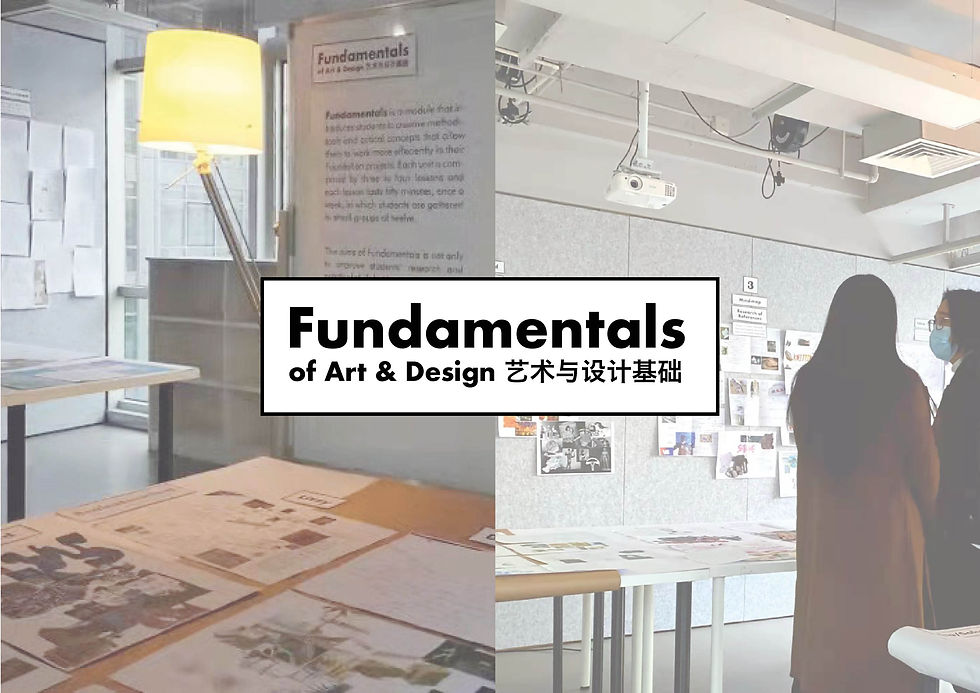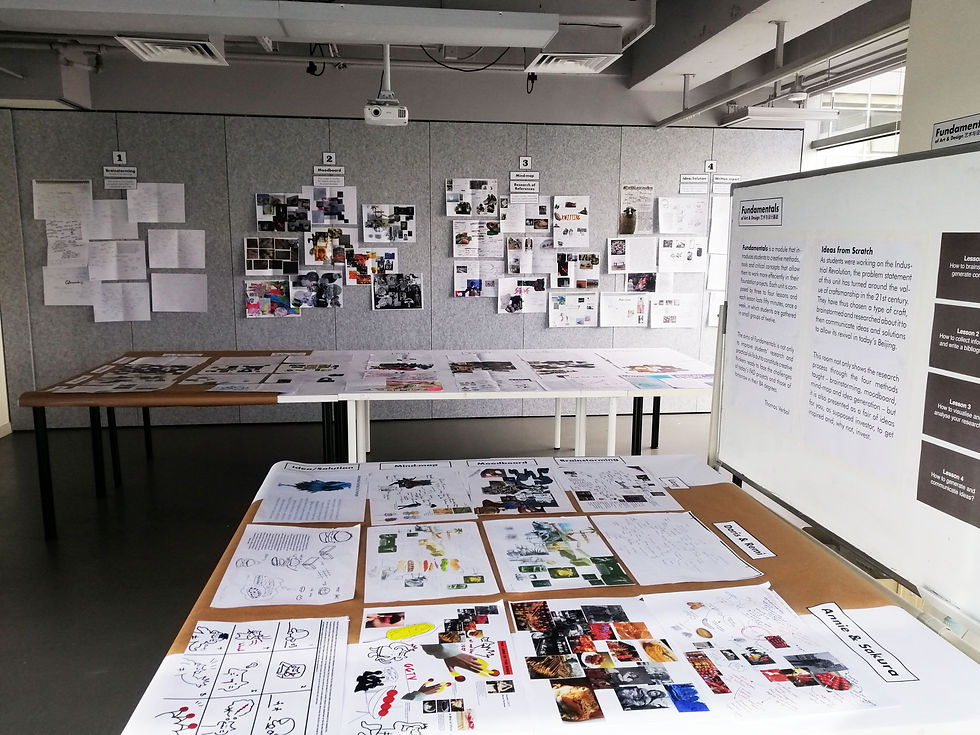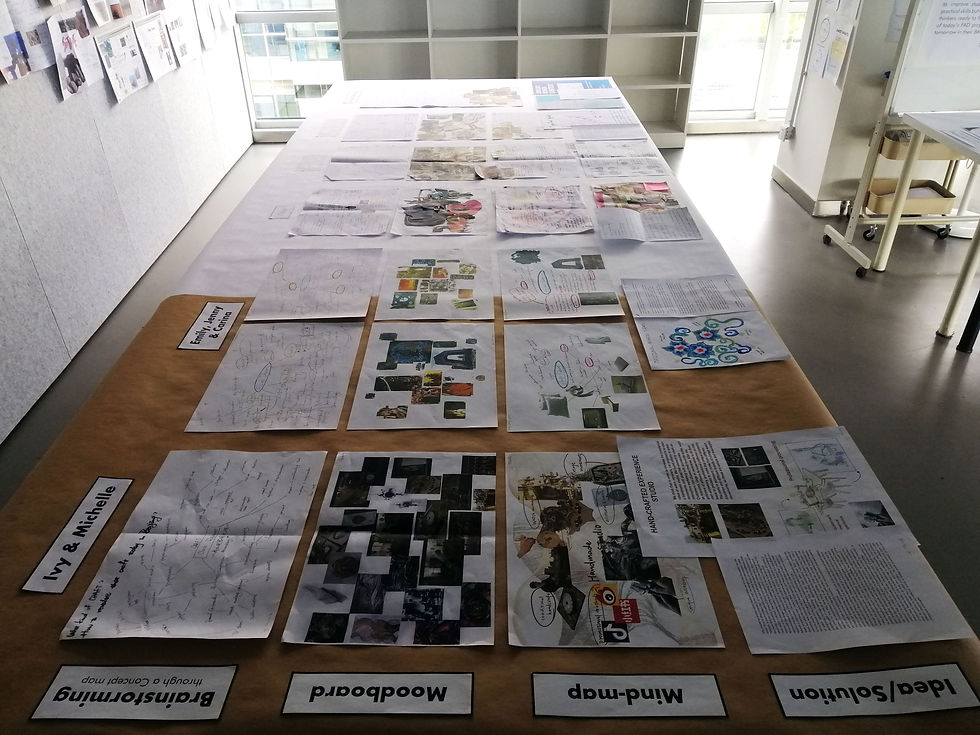Fundamentals
Creative methods for FAD
Since August 2021, besides tutoring visual communication students, I have developed a new module for all the Art and Design students of our Foundation degree in Beijing. Fundamentals is a module that introduces students to creative methods, tools and critical concepts that allows them to work more thoughtfully and efficiently in their Foundation projects. Each unit is composed by three to four lessons and each lesson is hold once a week, in which students are gathered in small groups of twelve. The aims of Fundamentals are not only to improve students’ research and practical skills but to constitute creative thinkers ready to face the challenges of today’s FAD projects and those of tomorrow in their BA degrees in the UK.
1. Process documentation
In the first unit, as students were doing their very first workshops in the Foundation studios, they needed to learn how to document and communicate their practice visually in their sketchbook but also through a two-minutes video that they were asked to present at the end of the three weeks. Therefore, in Fundamentals, students learnt how to layout an experiment on a page, how to take photographs, shoot and edit a short video that could show their work process.
2. Ideas from scratch
In the second unit, as students were working on the Industrial Revolution, the problem statement of this unit has turned around the value of craftsmanship in the 21st century. They have thus chosen a type of craft, brainstormed and researched about it to then communicate ideas and solutions to allow its revival in today’s Beijing. The room in which was held the final exhibition not only showed the research process through the four methods taught – brainstorming, moodboard, mind-map and idea generation – but it was also presented as a fair of ideas for the audience, as supposed investor, to get inspired and, why not, invest.




As each lesson is a new method taught, students start to acquire an encyclopedia of methods that, with time and experience, will allow them to be selective and choose those that they consider useful to work with according to the project given. Although methodologies are to be followed cautiously as there are not exact sciences, the methods that constitute them can be more appropriate when taken individually, combined and contextualized. As such, Fundamentals follows my longtime call for a structured experimentation in which students are free to follow their instinct, passions and ambitions as long as it is within a framework and a step-by-step process of work that secures them and gives them the foundations on which to rely on. In a few years’ time, they will be able to deconstruct what they learnt and, based on their toolkit of experiences, reconstruct a new approach of their own.
